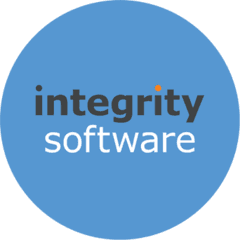Resources
Construction specific vs generic systems
It may appear that both types of accounting systems do much the same thing, so why would you select one over the other? We explore why.
When selecting accounts management software for your construction firm, you’ll be presented with two options: you’ll either opt for construction-specific accounts software, or you’ll choose a generic system instead. It may appear that both do much the same thing, so why would you select one over the other? Well, it all comes down to functionality and usability. There are some things that construction-specific accounting software can do that generic systems cannot, so it’s up to you to decide whether you can live without these extra functions and applications...
Accurate job costing
Accurate job costing is one of the most fundamental necessities in the construction sector. Over-or-underestimating the cost of a job can prove disastrous, so it’s vital that your accounting software is capable of undertaking accurate job costing in a clear and transparent way. Construction-specific accounts software is designed with this application in mind; when using generic systems, at best the information can only be gained in very manual, time-consuming ways that are more likely to result in costly human error.
Configurable to complex workflows
In the construction sector, workflows are rarely clear and straightforward. Firms will often need to communicate with surveyors, contractors, subcontractors, clients, local authorities and more besides, so it’s important that you select a software system that can adapt to these complicated processes. Dedicated construction accounts management software is highly customisable, adapting to meet your requirements in a way that generic systems simply cannot match. As well as handling these processes, construction-specific software can also manage applications and retentions in a way that generic systems can’t, providing a distinct advantage for such an essential task.
Advanced reporting for multiple users
With complex workflows inevitably come multiple users. You won’t be the only one relying on your accounts management software: users from different departments within your company, your contractors and subcontractors will also come to depend upon its functionality. Construction accounts management software can allow hundreds of users to access processes and stored data at any one time, while generic systems are necessarily more restrictive.
Multi-site usability
Large construction firms operate from multiple sites, often spread across the country or even internationally. It’s important that these different arms of your business are able to operate independently without interfering with one another, but it’s also important that you’re able to consolidate these diverse streams of information at the end of the day. Construction-specific financial management systems are designed with this sense of scope and scale in mind, allowing you to aim as high as you need.
Flexibility
The final attribute of construction management software programs that generic systems cannot compete with is that they will not ask you to adapt to them. Generic accounts management systems are designed to be flexible and fit to any client in any sector, but they’ll necessarily ask you to bend back a little in return - it’s a system built on compromise. Construction-specific accounts management systems, however, are made to fit, like a bespoke suit, so you won’t have to change anything about the way you run your business in order to make them work.
If you like the sound of an accounts management system that can work without compromise, take a look at our Evolution range or contact us to find out how we can help.
About Integrity Software
We have been providing construction software solutions to UK and Irish construction businesses for more than 40 years, and our fully-integrated construction accounting software is used by more than 1,000 leading construction businesses.
© Integrity Software Systems Ltd 2024. Part of the JDM Technology Group
Privacy PolicyCookie PolicyWebsite Terms & ConditionsIntegrity Terms and Conditions
